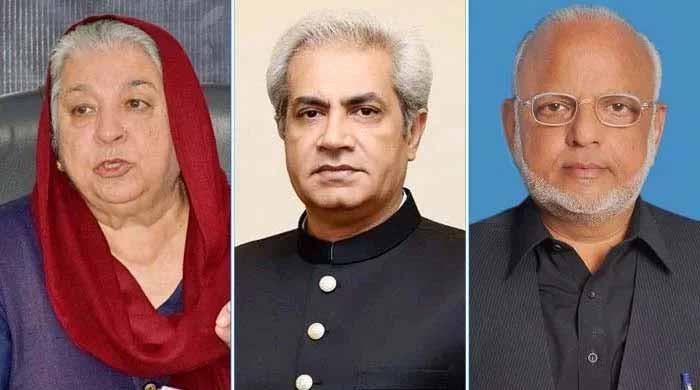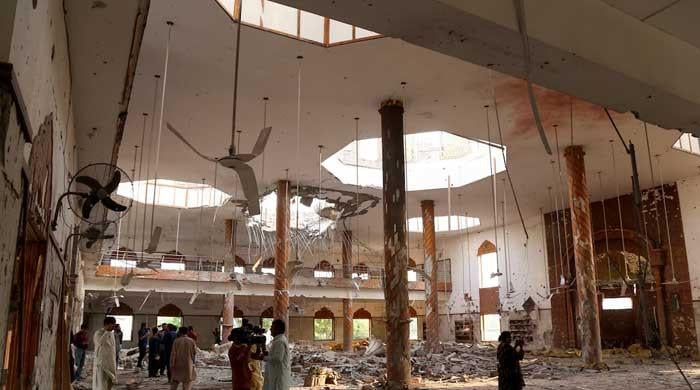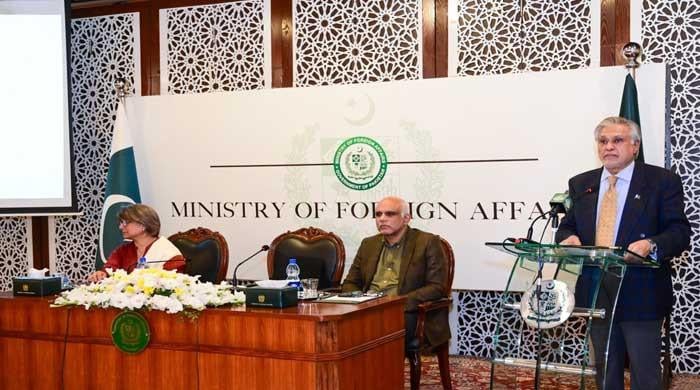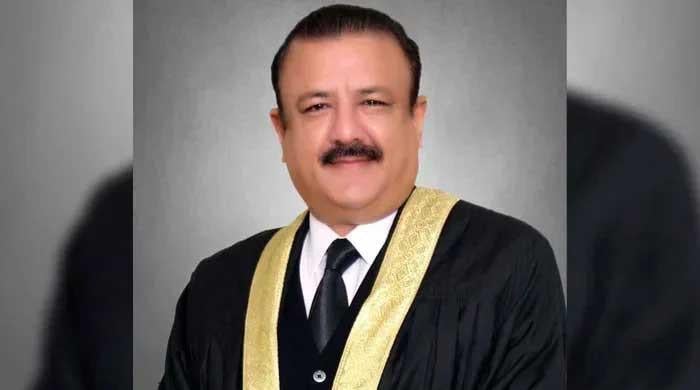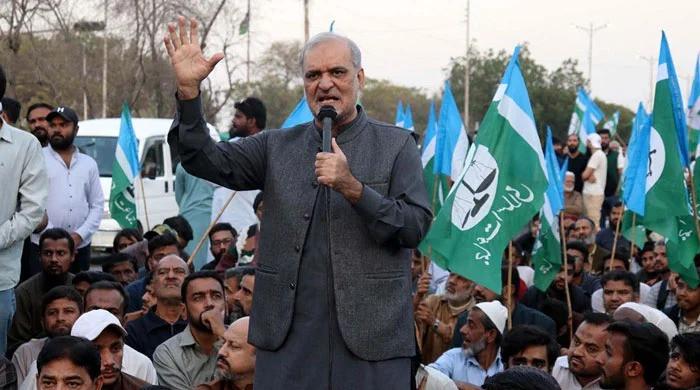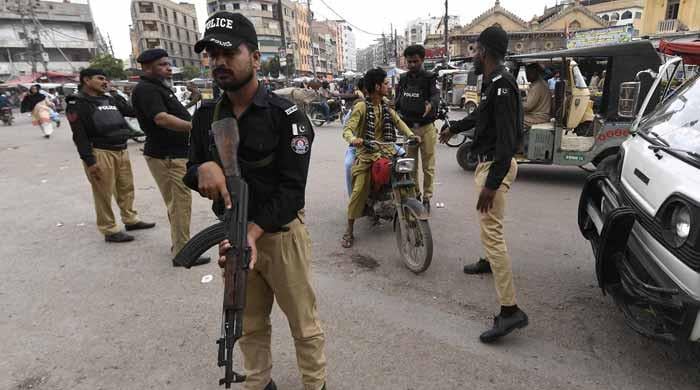'Something can happen' at Afghanistan border 'but we are ready': DG ISPR
DG ISPR says India's role in Afghanistan had been "extremely negative" and the international community should understand that
August 27, 2021
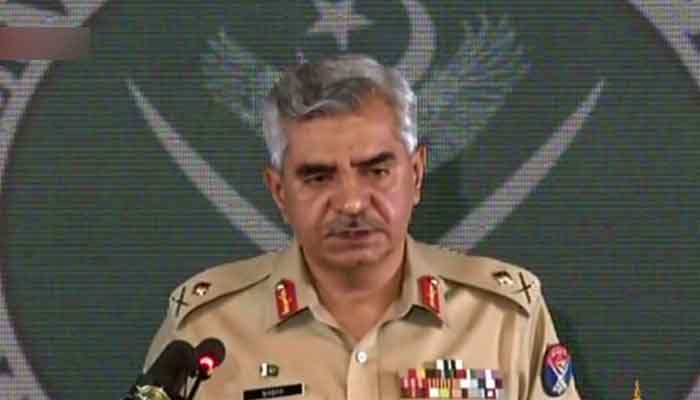
- DG ISPR says Pakistan "ready" for all sorts of situations unfolding at the Pakistan-Afghanistan border.
- Says as of now, the situation along the border is "normal" and "under control".
- Says India's role in Afghanistan had been "extremely negative" and the international community should understand that.
ISLAMABAD: Director-General Inter-Services Public Relations (ISPR) Major General Babar Iftikhar addressed an important press briefing on the Afghanistan issue on Friday, saying that "something can happen" at the Pakistan-Afghanistan border but "we are ready" for all sorts of situations.
Situation at Pakistan-Afghanistan border 'normal'
Speaking about the situation along the Pakistan-Afghanistan border from a military perspective, he said that the situation on the ground in Afghanistan changed rapidly — against all expectations, in reference to the swift takeover of the country by Taliban forces, which culminated in the group entering Kabul on August 15.
Apprehensions were always there but, despite all that, the situation along the border is "normal" and "under control" as no untoward incident took place at the border or inside the country, he said.
"We have taken every possible step to maintain security at the border and every movement is under control there. But this does not mean that nothing can happen, something can happen, but we are prepared; it is not that we will be unaware of that," the military's spokesperson said.
He said that after August 15, the border had to be closed and reopened several times.
"Soldiers of the Afghan National Army sought refuge in Pakistan several times," he said. "On different occasions, 94 Afghan soldiers crossed over into Pakistan for safe passage, which was granted to them. We treated them in line with military values and made their return possible."
There are 78 crossing points at the border and considering the situation, 17 of them have been notified for better management and control of movement.
"Movement from across the border is allowed only to those who are in possession of valid documents," he said, adding that only five crossing points are currently open for trade while 73 have been closed for security reasons.
Responding to a question, the DG ISPR said Pakistan had expected a spill over into the country as the situation unfolded in Afghanistan but said that the army had been taking several steps to safeguard against the possibility since 2014.
"That is when we upped the ante against the terrorists' interests [...] which were there," he said, about Pakistan's operations conducted in the areas along the Pakistan-Afghanistan border.
The DG ISPR said Operation Zarb-e-Azb was the conclusion of major military operations in those areas and then the military started Operation Radd-ul-Fasaad — which covers the whole country and all the law enforcement agencies (LEAs) are involved in it.
Regarding a "possible refugee crisis", the DG ISPR said that at the moment, there are no refugees at the Pakistan-Afghanistan border.
'Pakistan second-biggest target of violence'
The DG ISPR said that other than Afghans, Pakistanis have been the biggest target of violence because of the volatile situation in Afghanistan for the last several decades.
"Pakistan had to bear an expense of $152 billion to fight against terrorism," he said, adding that the country sacrificed more than 86,000 lives in the process.
Regarding the future, he said that Pakistan "trusts that the Taliban will take effective measures to ensure TTP does not operate against any country."
India's role in Afghanistan 'extremely negative'
The DG ISPR went on to say that India's role in Afghanistan had been "extremely negative" and the international community needs to understand it.
"India poisoned the minds of the Afghan leadership, its intelligence agencies, as well as the army, thus giving rise to negative statements against Pakistan," he said.
The military's spokesman said that India's Research and Analysis Wing (RAW), together with Afghanistan's National Directorate of Security (NDS) had extended help to terrorist organisations like Daesh and the TTP, among others, to conspire against Pakistan.
He spoke about the recent attacks on Chinese nationals in Pakistan and said that "comprehensive security measures" are in place.
"The ministry of interior is looking after the matter, and if there is a requirement, the security will be beefed up further."
Shedding light on possible terrorist attacks orchestrated by RAW and other elements along Pakistan's eastern border, the DG ISPR said there is "nothing to worry about as the army has taken all measures" to keep the land safe.
'No civil war in Afghanistan'
Replying to another question, he said that while there was "always a fear of a civil war" taking place in Afghanistan, the situation is volatile and nothing can be said about it as of now.
"However, right now, there is no civil war in Afghanistan," he said.
He said that Pakistan is "hoping for the best" in terms of normalisation of the situation in Afghanistan but would not like to "speculate anything".




